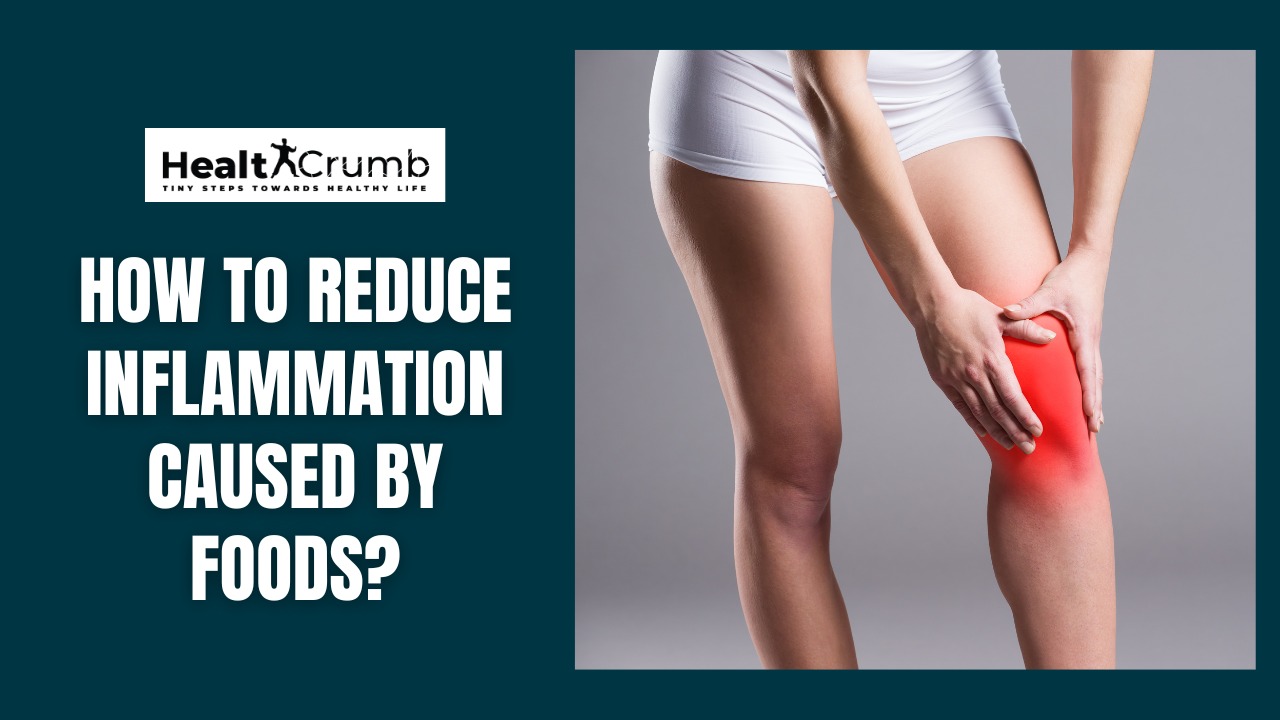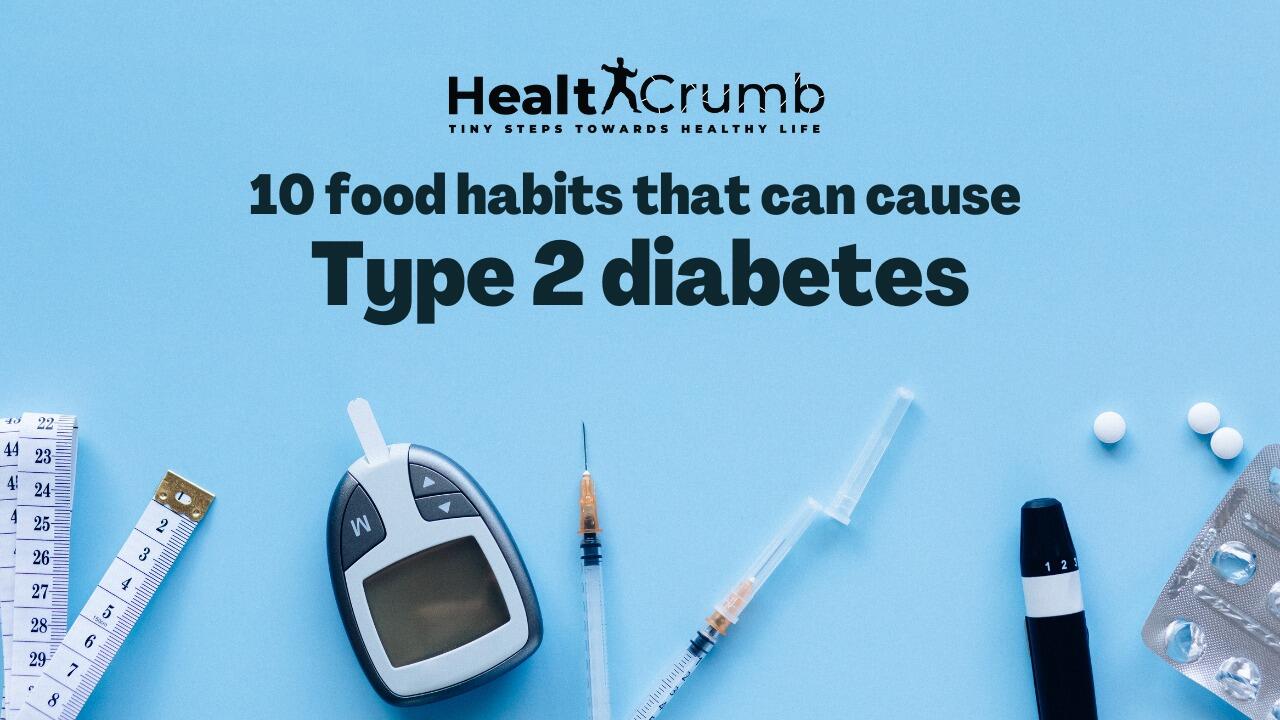Inflammation is a common problem that can be caused by a variety of factors. But did you know that certain foods can contribute to inflammation? In this blog post, we will explore how to reduce inflammation caused by foods.
We will discuss the role of diet in inflammation, and offer some tips on which foods to avoid and which foods to eat more of to reduce your risk of inflammation.
What is Inflammation?
Inflammation is the body’s response to injury or infection and is a natural process designed to protect us. However, when inflammation occurs chronically, it can lead to health problems. There are many things that can cause chronic inflammation, including diet.
Certain foods have been shown to contribute to inflammation in the body. These include refined carbohydrates, trans fats, omega-6 fatty acids, and sugar. Eating a diet high in these inflammatory foods can contribute to conditions like heart disease, diabetes, arthritis, and cancer.
Fortunately, there are also many anti-inflammatory foods that can help reduce inflammation in the body. These include omega-3 fatty acids, fruits and vegetables high in antioxidants, and spices like ginger and turmeric.
Incorporating more of these anti-inflammatory foods into your diet is a great way to help reduce chronic inflammation and improve your overall health.
Foods That Cause Inflammation
There are many things that can cause inflammation, but did you know that the foods you eat can be a major factor?
Certain foods can cause your body to produce more inflammatory chemicals than others. And while some inflammation is necessary and helpful (like when you have a cut that becomes inflamed to help heal it), too much inflammation can lead to health problems.
The foods that we eat can have a major impact on our inflammation levels. Some foods are pro-inflammatory, meaning they promote inflammation in the body. Other foods are anti-inflammatory, meaning they help to reduce or control inflammation.
There are many different factors that can contribute to inflammation in the body, but diet is one of the most important. Certain foods can trigger an inflammatory response, while others can help to reduce it.
Pro-inflammatory foods include sugar, refined carbohydrates, unhealthy fats, and processed meats. These foods cause inflammation by promoting the release of inflammatory chemicals in the body. They also tend to be high in calories and low in nutrients, which can lead to weight gain and other health problems.
Anti-inflammatory foods include fresh fruits and vegetables, whole grains, healthy fats, and omega-3 fatty acids. These foods help to fight inflammation by reducing the production of inflammatory chemicals in the body. They are also generally high in nutrients and low in calories, which can help you maintain a healthy weight.
Common inflammatory foods include:
- Sugar
- Refined carbohydrates (white flour, white rice)
- Trans fats (found in processed and fast foods)
- Omega-6 fatty acids (found in vegetable oils like soybean and corn oil)
Eating an anti-inflammatory diet is one of the best ways to reduce chronic inflammation. This means eating plenty of fruits, vegetables, whole grains, and healthy fats like olive oil and fish. It also means avoiding or limiting inflammatory foods as much as possible.
How to reduce inflammation caused by foods?
There are many foods that can contribute to inflammation in the body. Some of the most common offenders are sugar, refined carbs, saturated and trans fats, alcohol, and processed meats. While it’s not possible to eliminate all inflammatory foods from your diet, there are ways to minimize their impact.
Here are some tips for reducing the inflammatory potential of your diet:
1. Choose complex carbohydrates over simple sugars and refined carbs. Complex carbs like whole grains, beans, and vegetables take longer to break down and cause less of a spike in blood sugar levels. This can help reduce inflammation throughout the body.
2. Limit your intake of saturated and trans fats. These types of fats are known to increase inflammation levels in the body. Instead, opt for healthy unsaturated fats like olive oil, nuts, and seeds.
3. If you drink alcohol, do so in moderation. Excess alcohol consumption is a major contributor to inflammation in the body. Try limiting yourself to one or two drinks per day.
4. Avoid processed meats as much as possible. Processed meats like sausage, bacon, and deli meat are high in inflammatory compounds that can contribute to health problems down the road. If you must eat them, do so sparingly and make sure they make up no more than 20% of your overall meat intake for the week.
5. Eat plenty of anti-inflammatory foods. There are many foods that have been shown to help reduce inflammation in the body. Some of the best include fatty fish like salmon, fruits and vegetables, olive oil, nuts, and seeds.
Avoid inflammatory foods. Some of the most common inflammatory foods include sugar, refined carbs, unhealthy fats, and processed meats. If you want to reduce inflammation, it’s important to avoid these foods as much as possible. Eat more anti-inflammatory foods. There are a number of anti-inflammatory foods that can help to reduce inflammation. Some of the best options include omega-3 rich fish, fruits and vegetables, healthy fats like olive oil, and nuts and seeds.
6. Get enough sleep. Sleep is crucial for reducing inflammation. Aim to get 7-8 hours of sleep every night and make sure to keep your bedroom dark and quiet to promote better sleep quality.
7. Exercise regularly. Exercise is another great way to reduce inflammation. Not only does it help to improve circulation and increase endorphins (which have natural anti-inflammatory properties), but it can also help to reduce stress levels – which can contribute to inflammation.
8. Manage your stress levels. Stress can be a major trigger for inflammation, so it’s important to find ways to manage it effectively. This might involve yoga, meditation, deep breathing exercises, or simply spending time in nature. Find what works for you and make sure to stick with it.
Which Foods Reduce Inflammation
The body’s inflammatory response is a natural mechanism designed to protect us from infection and injury. However, when this response is constantly activated, it can lead to chronic inflammation, which has been linked to a range of health problems including heart disease, arthritis, and diabetes.
There are many different factors that can contribute to chronic inflammation, but diet is one of the most important. Certain foods can promote inflammation in the body, while others can help to reduce it.
If you’re looking to reduce the amount of inflammation in your body, start by incorporating more of these anti-inflammatory foods into your diet:
- Fish: Fish such as salmon, mackerel, and sardines are rich in omega-3 fatty acids, which have powerful anti-inflammatory effects.
- Nuts and seeds: Walnuts, flaxseeds, and chia seeds are all excellent sources of omega-3 fatty acids. In addition, nuts and seeds contain other nutrients that support a healthy inflammatory response such as vitamin E and magnesium.
- Fruits and vegetables: Fresh fruits and vegetables are packed with antioxidants and other nutrients that help to reduce inflammation. Aim for at least five servings per day.
- Olive oil: Olive oil is rich in monounsaturated fats and antioxidants, both of which have anti-inflammatory properties. Use olive oil in place of other oils when cooking or baking.
- Herbs and spices: Many herbs and spices contain antioxidants and other compounds that help to reduce inflammation. Common anti-inflammatory spices include ginger, turmeric, cloves, and cinnamon.
- Probiotic-rich foods: Probiotics are live bacteria that are found in fermented foods such as yogurt, sauerkraut, and kimchi. These beneficial bacteria help to keep the gut healthy and support a healthy inflammatory response.
- Green tea: Green tea is rich in polyphenols, which are powerful antioxidants that help to reduce inflammation. Drink one or two cups of green tea per day.
- Dark chocolate: Dark chocolate contains flavonoids, which are antioxidants that help to reduce inflammation. Choose dark chocolate with a cacao content of 70% or higher.
- Bone broth: Bone broth is rich in gelatin, which helps to reduce inflammation in the gut. It’s also a good source of minerals such as calcium and magnesium, which are important for bone health.
- Red wine: Red wine contains resveratrol, an antioxidant that has anti-inflammatory effects. Limit yourself to one glass per day.
Final Words
If you have chronic inflammation, you may be wondering how to reduce inflammation caused by foods. Diet is a major factor in inflammation, and certain foods can trigger or worsen inflammation. To help reduce inflammation, avoid inflammatory foods like sugar, refined carbs, saturated and trans fats, artificial additives, and alcohol.
Instead, focus on eating anti-inflammatory foods like fruits, vegetables, whole grains, omega-3 fatty acids, and antioxidants. These nutritious foods will help reduce inflammation and promote overall health.
If you are struggling with inflammation, it is important to identify the foods that are causing it. Once you know which foods are triggers for you, you can then take steps to avoid them.
There are also many anti-inflammatory foods that you can add to your diet to help reduce inflammation. Adding these inflammation-fighting foods to your diet and avoiding inflammatory trigger foods can help you live a healthier, pain-free life.



